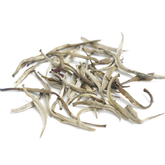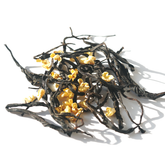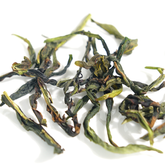Does Tea Have Almonds?|NPTEA
It is great in variety, and under the six big kinds of tea, many subcategories, particularly in China exist. Chinese teas are different in flavor and their diverse manners of preparation let different perfuming compounds come forward. The aromas are all natural, having no artificial flavorings or additives inside them. In the Western market of tea, enhancement in flavor in some teas is brought about by additions, such as almonds. In this article, we will explore whether tea contains almonds, the role of almonds in tea, and how to determine if almonds are added to your tea.
What are Almonds?
Almonds are the seeds of the almond tree and are widely used in food and baking. There are two main types of almonds: sweet almonds and bitter almonds. Almonds are rich in healthy fats, vitamins, and minerals, making them a popular ingredient in many food products, including tea.
- Sweet Almonds: These are the almonds we consume regularly. They have a mild, sweet flavor and are commonly found in raw form, baked goods, mixed nuts, almond butter, almond milk, and other food products.
- Bitter Almonds: These almonds contain higher levels of cyanide compounds and are typically not eaten raw. They are processed for almond oil extraction or used as a medicinal ingredient in some cultures.

Almonds are highly nutritious, containing healthy monounsaturated fats, dietary fiber, protein, vitamin E, magnesium, potassium, and antioxidants. They support heart health, help control blood sugar levels, provide energy, and strengthen the immune system.
Why Are Almonds Added to Western Teas?
In some flavored teas, particularly those marketed in the Western market, almonds are added to provide a smooth, nutty flavor. Almonds can be paired with other ingredients such as fruit bits to enhance the overall flavor experience. The almond flavor may also be achieved using almond extract or almond oil, rather than whole almonds.
Generally, if a tea does not have a strong natural flavor or if its taste is relatively shallow, other ingredients like almonds may be added to cater to the market’s preferences. Low-quality teas often have a bitter, astringent taste, which can make them unpleasant to drink.
How to Determine if Tea Contains Almonds?
The most direct way to determine if tea contains almonds is to check the ingredients list on the packaging. In flavored teas, almonds may be listed directly, or the tea may mention “almond extract” or “almond flavor.” For teas from China, the product ingredient list typically only contains fresh tea leaves. If you are unsure about the ingredients, you can contact the manufacturer for more information.

However, be cautious, as some low-quality teas may emit a strong, artificial fragrance. This could be the result of added artificial flavors pretending to be high-quality loose-leaf tea. Such scents are usually sharp and unnatural.
What Ingredients Are Added to Flavored Tea and Their Health Risks?
In Western markets, flavored teas often include additional ingredients to enhance taste and aroma, aside from the tea leaves themselves. However, it's important to note that these added ingredients may come with certain health risks. Below are common ingredients found in flavored teas and their potential health risks.
- Spices
- Flowers and Fruit Peels
- Sugars and Sweeteners
- Fruit Juices and Concentrates
- Artificial Flavors
- Natural Flavors
Flavored teas come with a wide range of added ingredients, which can enhance the flavor and aroma of the tea but also carry potential health risks. When choosing flavored teas, consumers should pay attention to the ingredient list and avoid excessive intake of certain additives. For those with allergies, it's important to be cautious when selecting teas containing flowers, fruit peels, and spices. Moderating the intake of sugars and sweeteners can help reduce health risks.
Conclusion
Loose-leaf teas from China generally do not contain any artificial flavors or other ingredients. High-quality teas naturally have enchanting aromas and flavors. However, some blended flavored tea products may use almonds or almond flavoring to enhance taste or aroma. Almonds are a nutritious nut, rich in healthy fats, protein, and minerals, benefiting heart health, immune function, and blood sugar control.
It is advisable to directly check the product label to confirm whether your tea contains almonds or almond-based ingredients. For individuals with allergies, being aware of these ingredients is important to avoid triggering allergic reactions.
SEE MORE CHINESE TEAS
If you have questions about selecting tea:
Learn-more-about-chinese-tea
If you have questions about the benefits of tea:
Health-benefits-of-chinese-tea
If you have questions about brewing tea:
How-to-brew-loose-leaf-tea






